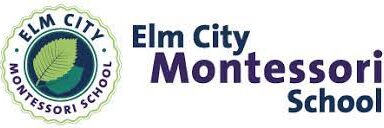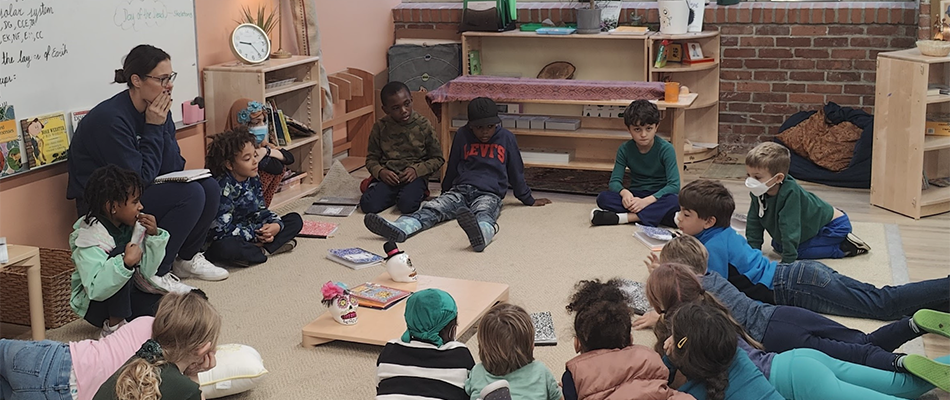“Only through freedom and environmental experience is it practically possible for human development to occur.”
-Dr. Maria Montessori
Weekly SEL Circles
All of our social emotional learning work is anchored in our ABAR practices, our Montessori philosophy, as well as text’s like Conscious Discipline. Our SEL staff presents weekly SEL circles in all classrooms. Circle topics are aligned with our school’s ABAR learning themes – Identity & Self Love, Seeing & Celebrating Differences, Justice, Bias, & Harm, and Activism. Our SEL team has planned developmentally appropriate reflection questions to help us share our experiences and learn from each other.
After our circles each week, families are informed regarding what we shared and some suggested ways they can follow up on these conversations at home. Families should feel free to reach out with any questions about circles or how they can continue the conversation with their child at home.
Reflective Process
Here at ECMS, sometimes there are things that come up that require a check-in with an SEL support person. This check-in often happens right in the classroom, but there are times when a private check-in is best and we move to another space, like the Reflection Room.
Together, we work through our reflective process:
1. Find Calm
2. What Happened?
3. How did you feel?
4. Who was affected?
5. What could you have done differently?
6. How can you repair with your community?
7. Make commitments for moving forward
Classroom team or SEL team connects with families if their student needs support during the day.
Attendance
A big focus of the SEL team’s work is supporting attendance. Studies show that there is a strong correlation between strong school attendance and academic and social success (National Center for Education Statistics). ECMS encourages and expects each student to attend school at least 95% (fewer than 10 absences) of the school year. The CT State Department of Education requires that every K-12 student attends school at least 90% (fewer than 19 absences) of the school year.
Restorative Process
Restorative work is used when there has been damage to a community or relationship and can be effective in both small group or whole class settings. During a restorative circle, each person has a chance to share their experience and make commitments to each other based on community/relationship needs.
Restorative Processing Questions:
- What happened and how did you feel?
- What was the impact on you and your community?
- Moving forward, based on what you heard what can you commit to?
After the circle, these commitments are shared with the classroom team and families of participants.
Contact Us
- Myesha Knight, Primary SEL Coordinator
myesha.knight@elmcitymontessori.org - Holly Stemphowski, Lower Elementary SEL Coordinator
holly.stemphowski@elmcitymontessori.org - Bryanna Bonner, Upper Elementary SEL Coordinator
bryanna.bonner@elmcitymontessori.org - Jennifer Langlois, School Social Worker, 504 Coordinator
jennifer.langlois@elmcitymontessori.org - Amy Schlank, Director of Student Support Services
amy.schlank@elmcitymontessori.org
Need us by phone ? Please call the main number 475-220-4100

